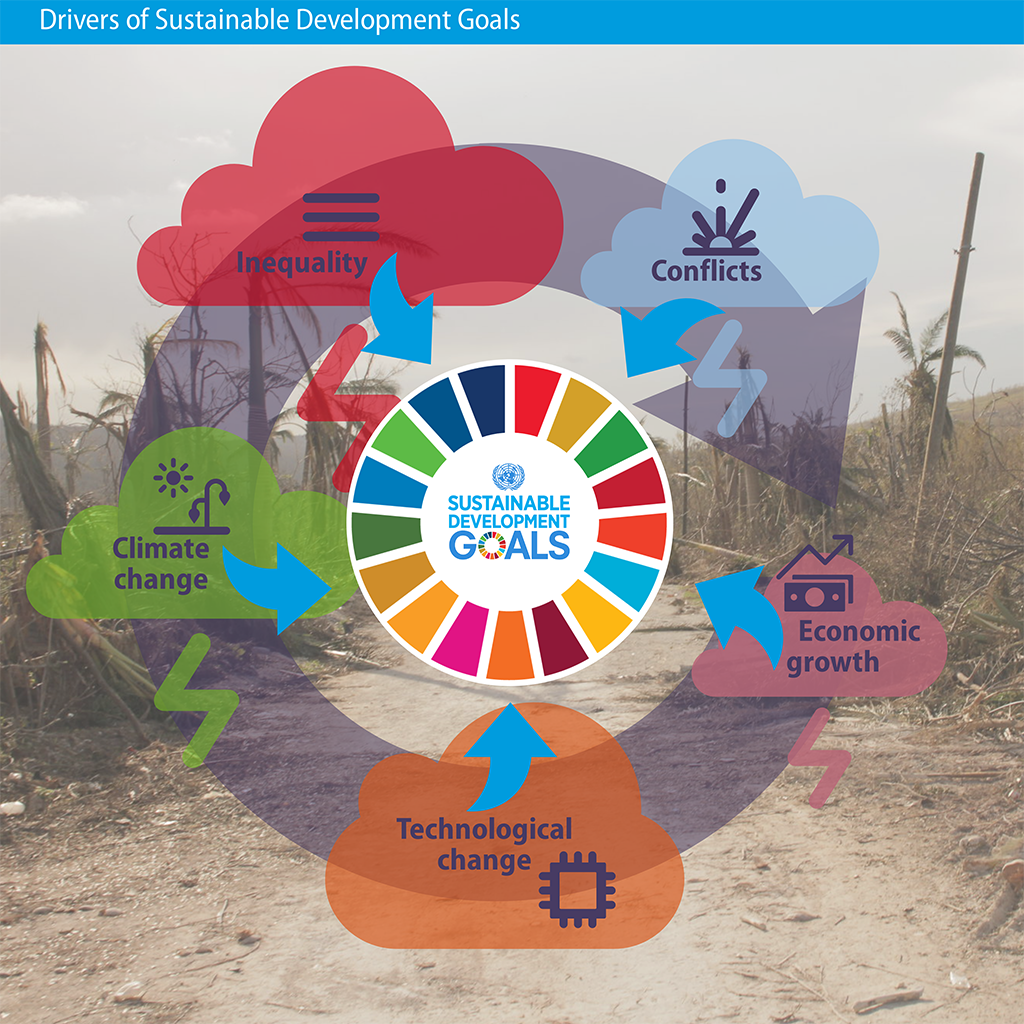What is Inclusive Sustainable Development?
What does poverty have to do with sustainability? Meet Inclusive Sustainable Development.
The UN defines sustainable development as “development that meets the needs of the present without compromising the future needs of upcoming generations”. How can this be achieved? The UN created its #ForPeopleForPlanet initiative, which works to unite efforts to build a planet inclusive of different communities, is sustainable, and can be resilient for future generations.
For this sustainable development goal to be achieved, the UN believes three core elements must be balanced. These elements are the growth of the economy, the inclusion of social aspects of a community, and its environmental protection. In simplest terms, true sustainability cannot be reached without all assemblies of the world being in the same state of sustainability.
The definition of the inclusive aspect of sustainable development is the idea that sustainability goals cannot be reached without eradicating poverty.
Source: https://www.un.org/development/desa/dpad/wp-content/uploads/sites/45/sdo2019-fig1.png
What hinders the pursuit of the UN’s Sustainable Development Goals?
One may look at the world and conclude that many individuals are living better lives than that in past decades. Access to the internet, cellular devices, healthcare accessibility, public education, and vehicles can make success and poverty seem less daunting. Yet, despite these advances, this is not the case.
A closer look at the global effects of climate change reveals that all of this work is being unraveled for communities affected by environmental degradation. Around 2 billion people are actually affected by global crises. Countries such as Sudan, Yemen, and Somalia suffer daily from crises such as climate disasters and global pandemics. These crises do not have a singular impact but have led to economic fallout and inflation of goods that are essential commodities such as food and energy resources.
These populations have to deal with the uncertainty of their safety, standard of living, and access to food. This is why sustainable development needs to be considered when considering the conditions of the earth. Sustainability, eco-friendly, and green initiatives need to consider the global impact of their actions rather than its smaller parts.
How can inclusive, sustainable development be driven?
There are four aspects that can be considered when obtaining to reach sustainable development on a global level.
The following principles can be used to guide partnerships, sustainable decision-making, and sustainable business plans.
Promoting sustainable growth that is inclusive.
The idea of sustainability is promoted within a business and consumer responsibility. Yet it seems that corporations lack the ability to maintain a level of sustainability that prioritizes the ecosystems of the world. For many communities, making eco-friendly purchases cannot be the first priority. Inclusive, sustainable growth can be achieved by the producers making business models that consider its impact rather than relying on the consumer to lessen the burden on the ecosystem.
2. Reducing inequalities in the economy.
Unfair access to healthcare, education, and jobs creates a great disadvantage for many communities that are unable to meet the requirements. How can an entity claim its sustainable conditions when poverty is still affecting its population? Creating more opportunities for equal access can result in a balance of sustainable claims amongst communities. This would result in a positive increase in the standards of living for others.
3. Building resilience within a community to withstand global shocks.
Building access resources such as disaster relief are essential to creating a community that is able to withstand global shocks. Without support, individuals lack the ability to get back on their feet and access basic human necessities. Entities should work to create the community as a priority during these catastrophic events.
4. Promoting sustainable management of natural resources, local ecosystems, and social development.
Social sustainability is considered inclusivity in the sense that citizens have a voice and governments respond. With the proper management of natural resources, ecosystems, and people, these three crucial key components of a sustainable community can be supported.
These items can be integrated or considered into the general understanding of sustainability as well as when creating an inclusive, sustainable plan for communities or a business. We must remember the global experience of all communities when attempting to build a better earth.
How can you help?
By becoming an eco-activist, you will support us in exposing greenwashing, bringing eco-news to light, and keeping you up to date with campaigns you can take part in to enact change. We also inform you of the newest sustainable information and the best circular companies to redirect your linear purchases.
What will you receive when you sign up?
Detailed insights into which sustainable brands to support
Tips on how to be more circular
Petitions
Campaigns
Weekly blogs
Weekly Newsletter
Certificate / Website badges
Click here to learn more and become a part of our movement.
Key Takeaways
The UN defines sustainable development as “development that meets the needs of the present without compromising the ability of future generations to meet their own needs.”
Access to the internet, cellular devices, healthcare accessibility, public education, and vehicles can make success and poverty seem less daunting. Yet, despite these advances, this is not the case.
The definition of the inclusive aspect of sustainable development is the idea that sustainability goals cannot be reached without eradicating poverty.
A closer look at the global effects of climate change reveals that all of this work is being unraveled for communities affected by environmental degradation. Around 2 billion people are actually affected by the global crisis.
Sustainability, eco-friendly, and green initiatives need to consider the global impact of their actions rather than its smaller parts.
Social sustainability is considered inclusivity in the sense that citizens have a voice and governments respond. With the proper management of natural resources, ecosystems, and people, these three crucial key components of a sustainable community can be supported.
By becoming an eco-activist, you will support us in exposing greenwashing, bringing eco-news to light, and keeping you up to date with campaigns you can take part in to enact change.


